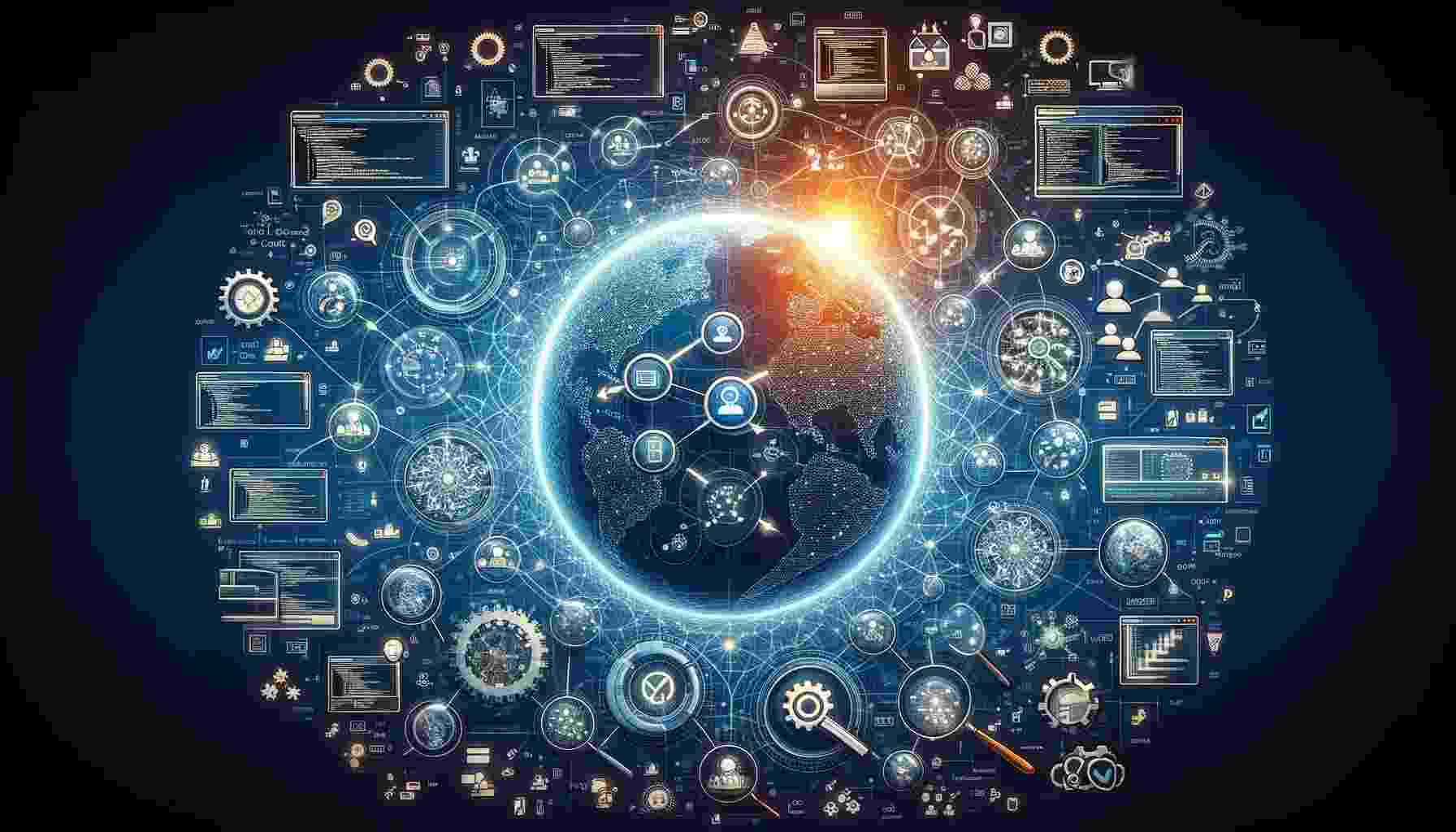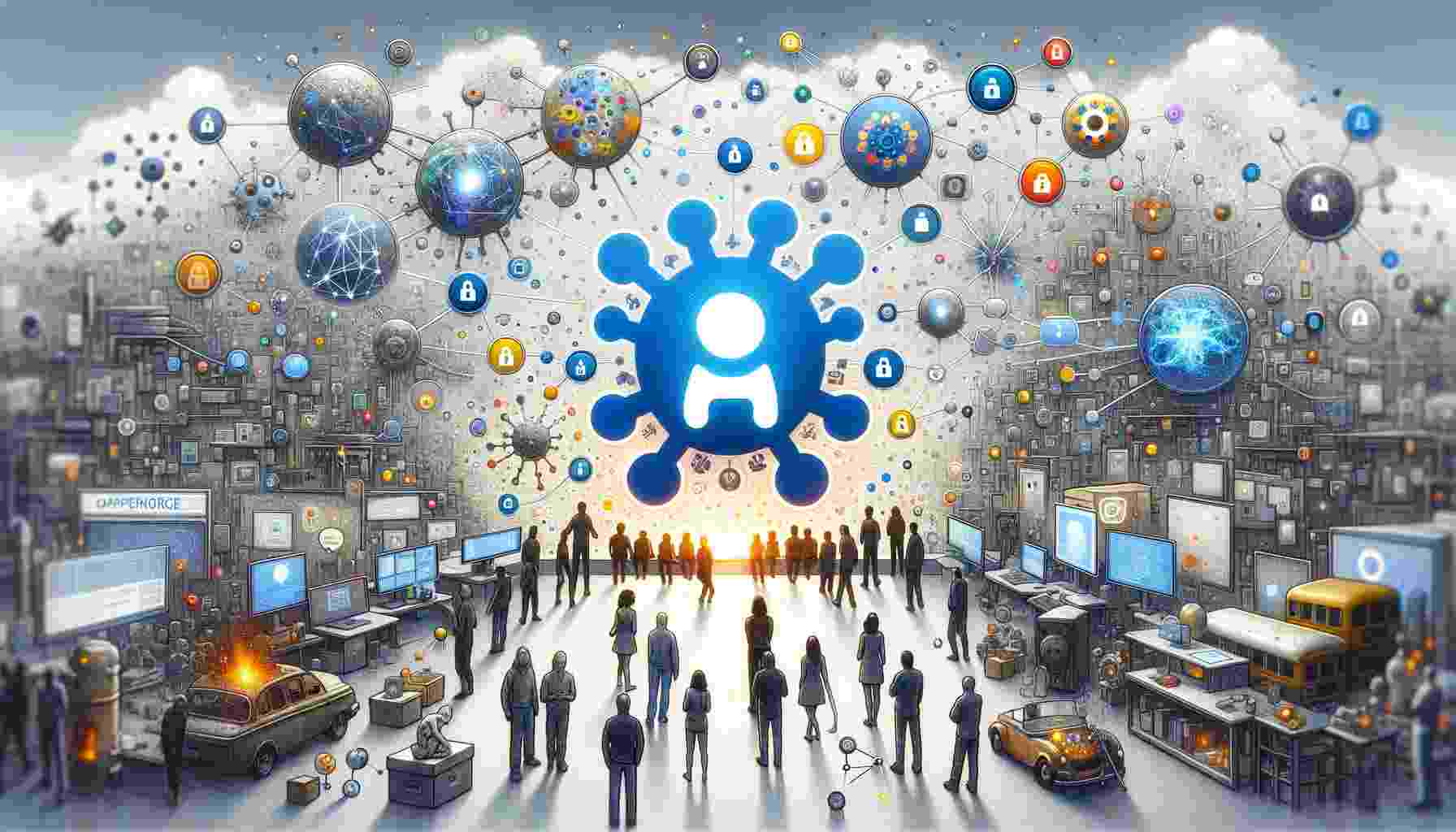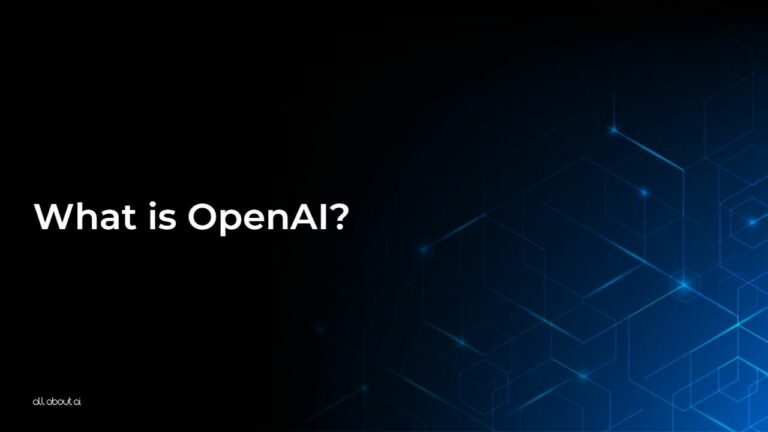What is OpenAI? OpenAI, a name synonymous with cutting-edge artificial intelligence, represents the forefront of AI research and development. It’s an entity committed to advancing AI in a safe and beneficial manner, often associated with groundbreaking projects that have captivated the tech world.
Want to learn all there is to know about OpenAI? Read this comprehensive article written by the AI enthusiasts at All About AI.
How Did OpenAI Begin and What are Its Objectives?

OpenAI’s journey is a blend of technological advancement and a commitment to global betterment.
The Inception of OpenAI
OpenAI was founded in December 2015 as a non-profit research company, established by a group of renowned entrepreneurs and researchers including Elon Musk and Sam Altman.
The vision was to create an entity that could pursue advancements in AI without the constraints of profit-making objectives. This foundation set the stage for OpenAI to focus on long-term research and broad, impactful objectives.
Objectives of OpenAI
Advancing AI Safely: OpenAI places a strong emphasis on developing artificial intelligence in a way that is safe and beneficial for humanity. This includes rigorous testing and research into AI ethics and safety protocols.
Democratizing AI: A key objective is to democratize AI technology, ensuring it is accessible and beneficial to everyone. OpenAI aims to prevent powerful AI systems from being controlled by a few, thereby promoting equitable access.
Long-Term Research Commitment: OpenAI is committed to long-term research, delving into areas that might not have immediate commercial benefits but hold significant potential for future AI advancements. This includes exploring novel AI theories and architectures.
What Challenges Does OpenAI Face in AI Development?
The path of AI development is fraught with challenges, ranging from technical hurdles to ethical dilemmas. OpenAI navigates these complexities, focusing on creating AI that’s both powerful and aligned with human values.
Technical Complexity
The development of advanced AI systems involves navigating immense technical complexity. OpenAI faces challenges in scaling AI models, improving their efficiency, and solving intricate problems in AI theory and application.
Ethical and Safety Concerns
A significant challenge is ensuring AI development aligns with ethical standards and safety. This includes preventing biases in AI models, ensuring they do not cause harm, and aligning their actions with human values.
Balancing Openness and Security
OpenAI strives to be transparent and open-source with its research, but this comes with the challenge of ensuring that powerful AI technologies do not fall into the wrong hands or are used maliciously.
Resource and Talent Acquisition
As AI research is resource-intensive, acquiring sufficient funding and attracting top talent are ongoing challenges, especially as the competition in the AI field intensifies.
Breakthrough Projects and Releases

OpenAI has been at the helm of numerous breakthrough projects. From the versatile GPT series to the creative DALL-E, these innovations have not only pushed the boundaries of AI capabilities but have also sparked widespread discussions about the future of technology.
GPT Series
The Generative Pre-trained Transformer (GPT) series, especially GPT-4, marks a significant breakthrough in natural language processing, offering unprecedented capabilities in language understanding and generation.
DALL-E
DALL-E, an AI program capable of creating images from textual descriptions, demonstrates OpenAI’s advancement in the field of generative AI, blending creativity and technology.
Robotic Hand Manipulation
OpenAI’s successful development of a robotic hand that can solve a Rubik’s Cube single-handedly showcases its strides in robotics and reinforcement learning.
How Does OpenAI’s Approach Differ from Other AI Labs?
Unlike many AI labs, OpenAI places a significant emphasis on ethical AI development and open collaboration. This approach underscores its commitment to AI safety and its vision of a shared, beneficial AI future.
The Role of OpenAI in AI Ethics and Safety
OpenAI isn’t just about technological leaps; it’s equally invested in AI ethics and safety. The organization actively engages in research and discourse surrounding the responsible use of AI, setting a precedent in the tech community.
- Setting Standards for AI Safety: OpenAI is at the forefront of establishing safety standards for AI development, ensuring that AI systems are reliable and aligned with human values.
- Research in AI Ethics: It conducts extensive research in AI ethics, exploring the implications of AI on society and finding ways to mitigate potential risks.
- Promoting Fairness in AI: OpenAI emphasizes reducing biases in AI models, ensuring that AI technologies are fair and equitable.
- Transparency in AI Development: OpenAI advocates for transparency in AI development processes, encouraging open discourse on AI advancements and their societal impacts.
- Global Collaboration on AI Safety: It collaborates with global entities to promote AI safety, sharing insights and best practices to create a universally safe AI ecosystem.
OpenAI’s Contributions to AI Research and Development
OpenAI’s contributions to AI research and development are profound and diverse. Through its groundbreaking projects like GPT-4 and DALL-E, OpenAI has pushed the boundaries of natural language processing and generative AI.
Its commitment to open-source research and collaborative initiatives fosters a more inclusive AI research community. Moreover, OpenAI’s focus on long-term AI research is paving the way for future innovations that may transform our interaction with technology.
The Expanding Universe of OpenAI

The influence of OpenAI extends beyond its projects. Its collaborative nature and commitment to open-source principles are helping to create a more inclusive and innovative AI community.
Collaborative Research and Partnerships
OpenAI is expanding its reach through collaborations and partnerships with academic institutions, tech companies, and other research organizations. These alliances enhance its research capabilities and extend its influence in the AI community.
Educational and Ethical Initiatives
The organization is actively involved in educational initiatives, aiming to disseminate AI knowledge and foster an informed and ethical approach to AI development. This includes publishing research papers, hosting seminars, and engaging in public discourse on AI ethics.
Diversifying AI Applications
OpenAI is constantly exploring new applications for its AI technologies, ranging from healthcare and robotics to environmental sciences. This diversification not only showcases the versatility of AI but also contributes to various sectors benefiting from AI advancements.
Infiltrate the world of artificial intelligence with our strategically built glossaries. Whether you’re starting out or highly skilled, fresh discoveries await!Want to Read More? Explore These AI Glossaries!
FAQs
Is OpenAI the same as ChatGPT?
Can I use OpenAI for free?
Is OpenAI safe to use?
Is OpenAI better than Google?
What is the difference between chatbot and OpenAI?
Final Thoughts
OpenAI isn’t just an AI research lab; it’s a beacon in the AI landscape, illuminating the path towards ethical, powerful, and beneficial AI technology. Its contributions and ethos continue to inspire and shape the future of AI.
This article was written to provide an answer to the question, “what is OpenAI,” discussing the rise of this company and their future in AI. If you’re looking to learn more about the ever-evolving world of AI, keep reading through the articles in our AI Definitions Guide.





